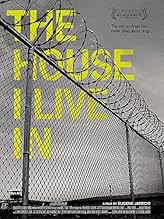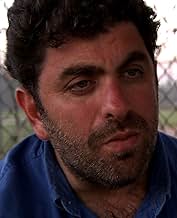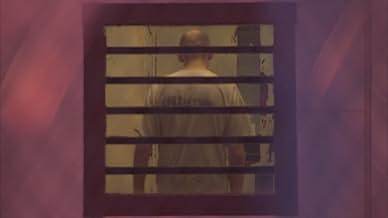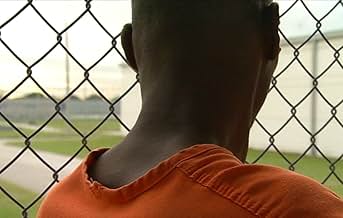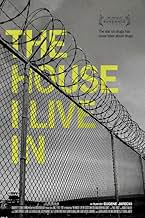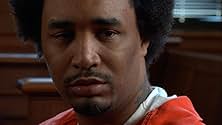From the dealer to the narcotics officer, the inmate to the federal judge, a penetrating look inside America's criminal justice system, revealing the profound human rights implications of U.... Read allFrom the dealer to the narcotics officer, the inmate to the federal judge, a penetrating look inside America's criminal justice system, revealing the profound human rights implications of U.S. drug policy.From the dealer to the narcotics officer, the inmate to the federal judge, a penetrating look inside America's criminal justice system, revealing the profound human rights implications of U.S. drug policy.
- Director
- Writers
- Stars
- Awards
- 4 wins & 3 nominations total
- Self - Harvard University
- (as Prof. William Julius Wilson)
- Self - Providence Police
- (as Lt. Glendon Goldsboro)
- Self - Commanding Officer, Narcotics
- (as Lt. Michael Correia)
- Self - Physician, Addiction Expert
- (as Dr. Gabor Maté)
- Self - U.S. Federal Judge
- (as Hon. Mark Bennett)
- Self - Maurice's Lawyer
- (as Jim McGough)
- Self - Lexington Corrections Center
- (as Warden Eric Franklin)
- Self - Harvard University
- (as Prof. Charles J. Ogletree)
- Director
- Writers
- All cast & crew
- Production, box office & more at IMDbPro
Featured reviews
It's not an anti-corporate rant with a clear villain to rally against. I left thinking that there was enough material and story there to easily fill a mini-series or a Ken Burns style documentary without getting preachy or creating fatigue.
It has enlightening and entertaining moments, but there are many flaws in the storytelling. Many characters are introduced, many of which with too much or not enough background, and seem to float around their promised purpose without really landing at a point or purpose. (Given the ending theme of the work, perhaps this is intentional.)
David Simon's incredibly powerful monologues bring a saving grace to moments in the film that tend to struggle, especially moments where the director awkwardly inserts himself into the film.
Unlike a lot of similar works, you could probably take your Republican parents to see it without the evening being automatically ruined.
Unlike almost every other advocacy piece I've seen, it achieves its goal of starting a conversation, rather than ending one.
Against this background, Eugene Jarecki has written, produced and directed this striking documentary examining the impact of the war on drugs in America. Starting with the black woman who was his childhood nanny, he interviews an eclectic cast of characters with different experiences of the problem: the drug dealer, the policeman, the judge, the prison guard, the life prisoner with no chance of parole, and – most eloquent of all – the creator of the television series "The Wire".
Until recently, the drug problem has been seen by many Americans as a black and brown issue and the strong emphasis on enforcement measures, with a growing use of mandatory minimum sentences, has led to a swollen ethnic prison population that, for many whites, has swept the problem off the streets and out of sight. But the availability of different drugs and the loss of manufacturing jobs has led to more white, working class men being caught up in this destruction of both personalities and communities. So, at its core, this is not an issue of ethnicity but one of poverty.
The film argues that the policies of the last four decades have failed and need to be fundamentally rethought. Drug use should be considered as less an issue of criminal justice and more a matter of public health. Many drug users are not evil or selfish but victims of poverty and deprivation who are trying to find some income where there is little employment and some solace when life is so miserable.
This is a stunning documentary that raises profound issues – and not just for Americans. It will not be an easy film to see at the cinema, so catch it on television (as I did) or buy or rent it.
Even more revealing is how Eugene Jarecki examines the history of drugs and how it's always been more the case that the poor and those that are black will be arrested for drug crimes. It's clear that many that live in a race and culture of downtrodden ridden history and black have simply became a statistical number for law enforcement to arrest. All while politicians on both side profit and get fat from fighting the drug war. Clearly they don't understand they need to stop locking people up for small drug offenses to save prison space for more serious criminals. Overall good doc that questions the way we are handling business in fighting the drug war it's educational and thought provoking no matter what your stance on the drug policy is.
The film provides an impressively broad set of data and evidence that cohesively screams one message—the war on drugs is a failure to the American public. As the first film focused solely on the subject, The House I Live In is undoubtedly one of the decade's most important films.
Some of the top minds in the industry on both sides give the best and most insightful talks, this has really been an eye opening film for me.
I wish I could mass produce this DVD for free and mail it to every citizen of the US. We need to change this system, it's broken and heading down a very scary path. Most people think that drugs and prisons don't affect them so why bother with the issue, you couldn't be any more wrong. Thousands of times a day the authorities are searching people and seizing property without due process, many times never finding anything. A man was killed after a raid and nothing was found. This IS RELEVANT TO ALL CITIZENS OF America. The Constitution is our savings grace, don't let it burn to ash along with your freedom.
Please watch this, even if you don't agree with everything, I feel like you can still learn something and apply it to your community and the ballet box to make a positive change in the right direction.
Did you know
- Quotes
Herself - Author, The New Jim Crow: You know, in any war, you've got to have an enemy, and when you think about impact, particularly on poor people of color, there are more African-Americans under correctional control today in prison or jail, on probation or parole, than were enslaved in 1850, a decade before the Civil War began. And that's something we haven't been willing to look in the mirror and ask ourselves, "what's really going on?"
- ConnectionsEdited into Independent Lens: The House I Live In (2013)
- SoundtracksGrandma's Hands
Written by Bill Withers
Published by Songs of Universal, Inc. on behalf of Interior Music Corp.
Performed by Bill Withers
Courtesy of Columbia Records
By arrangement with Sony Music Licensing
- How long is The House I Live In?Powered by Alexa
Details
- Release date
- Countries of origin
- Official sites
- Language
- Also known as
- Guerra contra las drogas
- Filming locations
- New Haven, Connecticut, USA(Interview)
- Production companies
- See more company credits at IMDbPro
Box office
- Gross US & Canada
- $210,752
- Opening weekend US & Canada
- $16,453
- Oct 7, 2012
- Gross worldwide
- $219,159





